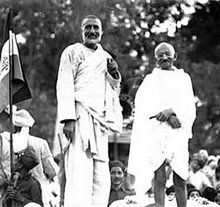"I would no more teach children military training than teach them arson, robbery, or assassination."--Eugene V. Debs
On Tuesday, March 20, 2007, "hundreds of protesters" walked out of class and marched through the campus at the University of North Carolina at Chapel Hill to protest the war in Iraq (according to the student newspaper, The Daily Tar Heel). I suppose this is a good sign. I only wish these protestors had joined me and the 15 or 20 other protesters who staged a demonstration back in 2003 at the start of the war. By now, the hundreds would be thousands. But we need hundreds of thousands or, better, a "Millions of Men, Women, and Children March" on the Capitol to shut it down until our demands are met.
I'm not holding my breath, however.
Indeed, I don't put a whole lot of stock in such actions, heart-warming as they may be--and I am sincere in my appreciation for them. Because even if we could bring an end to the Iraq war (or rather the American involvement in the Civil War that the Anglo-American invasion of 2003 precipitated), the enemies of democracy and international security in the White House, Congress, Pentagon, and K Street, would simply go back to the drawing board--as they did after Viet Nam--and go to work on the marketing plan for the next war.
We need to find ways to re-orient our population's attitudes towards violence. Unfortunately, there are no quick fixes for this task. As I have said before, this task is generational in scope; one that must proceed conscience by conscience.
One obvious starting place for the gradual moral revolution that is the prerequisite to any meaningful political and cultural change in the United States is with the institutions which are supposed to speak to people's consciences: houses of worship and schools. We truly need to consider whether and to what extent these institutions are, as a practical matter, recruiting stations for militarism. How can they be converted into recruiting stations for the Unarmed Services? How can they contribute to lowering the average individual's tolerance for violence?
Peacemaking is an activity. It requires, however, a narrative to direct and sustain it. Part of what I am hoping to accomplish over time with this blog is to compose the equivalent of hundreds and then thousands of pages of rumination upon this subject. Rumination that others might find useful and to the point; rumination to engender ideas that can support constructive action. For many years I alternately possessed, on the one hand, the courage to act and, on the other, convictions to support action, but rarely were the two properly aligned. Here I am thinking out loud in the hopes that others might think along with me. We need more than good intentions--though our intentions must always be good. We need more than the time and energy necessary to act--though time and energy are indispensible. We need plans and practical means of implementing them. The hour is getting late...
Subscribe to:
Post Comments (Atom)



No comments:
Post a Comment